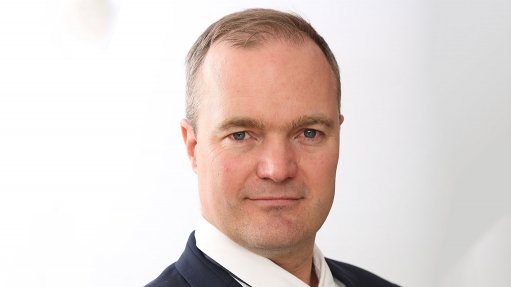
MARK WANLESS There is a strong sentiment among junior mining companies that they are marginalised and excluded from the action,
SRK Consulting principal geologist and partner Mark Wanless has suggested that, despite government’s stated intention of nurturing a junior mining sector, feedback from last month’s Junior Mining Indaba demonstrated that this commitment has yet to be met.
“There is a strong sentiment among junior mining companies that they are marginalised and excluded from the action,” he stated in press release last week.
Wanless said the message from junior miners was that they were strongly opposed to Mining Charter III, and that they had not derived any benefit from previous charters.
“They would like smaller firms and startups to be exempt from black economic empowerment (BEE) requirements, as having a large BEE shareholder with limited funding capacity is a big hurdle when seeking capital funding from investors,” he said.
Further, he noted that juniors conveyed a sense that government and the Department of Mineral Resources (DMR) had stifled business by overregulating the sector.
“The DMR has no usable portal where explorers or investors can find out who requires which prospecting licences, and what licences are available,” Wanless said. “The application process is quite opaque, time consuming and expensive; previously, it was possible to get a prospecting licence for a nominal fee on the same day.”
Geological information should be easily available to explorers, but is not – as there is no proper geological survey. Additionally, while the Council for Geoscience holds valuable information, it has no efficient and accessible means of sharing it.
He noted that many junior miners felt that the way the DMR worked had led investors to believe that South Africa was a risky place to invest in exploration. He added that juniors also said that corruption within the DMR was a major headache, as the bribing of officials had apparently become a common method of ensuring applications were processed.
“Factors like these have made fundraising on the JSE for mining projects within South Africa very difficult – despite attempts by the JSE to provide a fast-track, cheaper listing process for junior miners,” said Wanless.
Moreover, acquiring funding from outside South Africa was equally difficult, given the regulatory environment and a lack of appetite for high-risk investment.
Nonetheless, there were still a number of presentations at the Indaba which confirmed that South Africa remained a very good place to be conducting exploration work, given its substantial geological potential.
“These [presentations] illustrated that we have so many world-class orebodies – like the Witwatersrand goldfields and the Bushveld Complex – that many of the smaller but still good-quality deposits have been underexplored or overlooked,” he said.
Wanless believes that while the country has the necessary skills and expertise to revitalise the industry, the prevailing opinion at the Indaba was that government and unions were impeding development.
According to SRK partner and principal mining engineer Marcin Wertz, it is significant that junior mining companies recently formed their own alternative association to champion their interests.
“This is a sign that they feel their voices are not being heard, and that the stakeholders currently negotiating the Mining Charter do not represent them,” said Wertz.
He notes that exploration spend in South Africa is very low – just 14% of Africa’s and 2% of worldwide spend – and the country can learn from mining regulations in West Africa, which are tailored to explorers, while South Africa’s are tailored to producers.